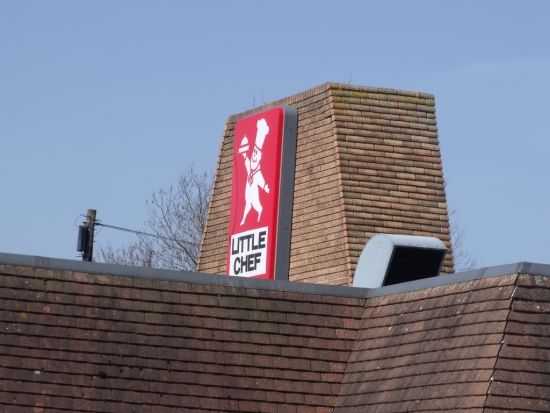For 55 years now, Little Chef has been an established stop for drivers, with restaurants lining motorways and A roads nationwide. However, turnaround specialists RCapital have warned that the brand may soon disappear forever after failing to find a buyer willing to continue the chain’s name.

RCapital placed the chain of 83 commercial properties up for sale in April after successfully returning Little Chef to profitability. This followed a large-scale restructuring programme which cut the number of outlets from 234 to 83 – a move which also significantly decreased the number of staff from 4,000 to 1,100.
While the restructuring firm has assured industry experts that a number of interested buyers have stepped forward and made their interest known, it believes that most are simply looking to acquire commercial properties in advantageous locations and rebranding them instead of continuing to trade under the Little Chef name.
In a statement, RCapital said; “The aim of the sale was to find a buyer that would take the business on to the next stage. However, the market is changing and fast food and coffee houses are growing in popularity.
“It is not a surprise that the majority of the offers for Little Chef are from companies that may want to re-brand the estate.
“RCapital has a deep affection for the Little Chef brand and it is hoped that some Little Chefs will remain on Britain’s A roads even if some sites are rebranded.”
While RCapital has not yet confirmed the identities of any of the estate’s bidders, industry experts believe that both McDonald’s and KFC have expressed significant interest in purchasing a large number of the chain’s restaurants. Hot drinks chain Costa Coffee is also rumoured to have placed a bid after concessionary stores in motorway service stations proved immensely popular with motorists.
Little Chef started out as an American diner themed restaurant in 1958 under founder Sam Alper. The first branch was located in Reading and only had space for 11 customers.
However, it grew in popularity until the 1980s, when American rivals began to flood the UK with fast food chains. After acquiring rival chain Happy Eater in 1986 it saw a large increase in the number of branded commercial properties it operated, peaking at a total of 439 in 1999-2000. Recently, it has had a well-publicised relationship with celebrity chef Heston Blumenthal who introduced a revamped menu and layout to the chain – yet unfortunately, even this failed to draw the crowds away from rival fast food chains.
While RCapital insists that the brand is now profitable once more, the high level of competition in the fast food industry is expected to turn away all but the most determined investors in terms of saving the name. A deal is expected to be completed by the end of summer, at which point it is highly possible Britain will be waving goodbye to the iconic restaurant brand.
Do you think British brands such as Little Chef should be saved, or are American imports such as McDonald’s and KFC too powerful for an 83 strong restaurant chain to compete with?
Previous Post
One in Five Shops Forecast to Close by 2018